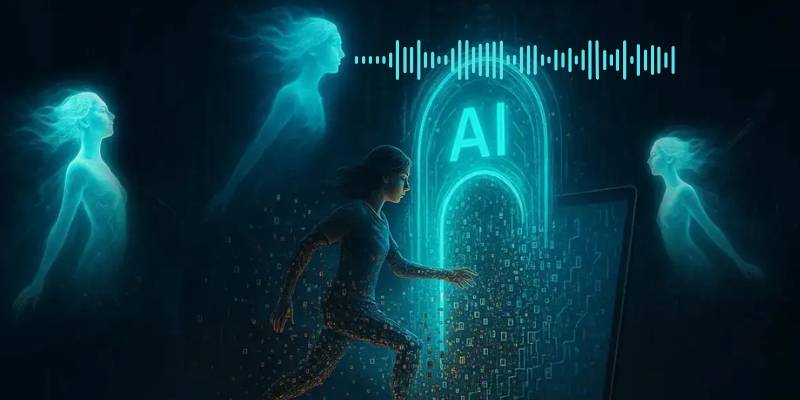Diego Felix Dos Santos never believed he’d hear his father’s voice again—until artificial intelligence stepped in. After his father died suddenly, the only sound he had to remember him by was a faint voice note recorded from a hospital bed.
Now, using ElevenLabs, a voice-cloning service, Diego uploads that tiny clip, pays about US$22/month, and hears his father speak again: “Hi son, how are you?”, “Kisses. I love you, bossy”—the childhood nickname echoing in his ear just as it used to.
What’s Going On
AI-powered “grief tech” is surging. Platforms like ElevenLabs, StoryFile, HereAfter AI, and Eternos are letting people create interactive avatars or voice clones of deceased loved ones.
Users upload recordings (like voice notes), then generate new messages in the voice of someone who is no longer with them. It’s not about bringing back ghosts—it’s more about preserving memory.
For many, it’s a way to stay emotionally tethered, to have something that “feels like, almost, he’s here.”
The Upside: Solace, Memory, Emotional Connection
People like Dos Santos say this technology gives comfort. It can bring relief when memories fade or when the loss feels too sharp.
Some family members, initially skeptical—religious beliefs, fear of ‘playing God’—find themselves warming to the idea when they hear how natural the synthetic voice can feel.
Others see value in planning ahead: some are even considering cloning their own voices so loved ones can preserve how they sound.
Even mental health experts acknowledge the potential: when used carefully, this tech can help people process grief in small steps, keep relatives close in memory, or provide a voice in moments where words fail. It’s a new form of journaling, really—one where what’s written is audible.
But It’s Not All Peaceful Echoes—There Are Shadows
Several serious concerns come up:
- Consent and agency: Did the deceased ever agree to have their voice used like this? What if they didn’t—or couldn’t?
- Emotional dependency: Could hearing a familiar voice become a crutch, stalling the painful but necessary work of letting go?
- Privacy & data misuse: Once recordings are uploaded, who controls them? Who ensures they aren’t used for something else, or even tampered with?
- Commercialization of grief: When grief becomes a market, corners can be cut. Ethics policies vary widely. Some companies require rigorous proof of consent; others are more lenient.
Grief experts warn that for some people, this tech might complicate rather than improve mourning—especially if someone treats the voice clone as a replacement rather than a supplement to processing loss.
A Few Extras You Might Not Read in the Straight News
Because I like poking around, here are some additional thoughts and context:
- In many cultures, death and the honoring of the dead are tightly wrapped in rituals, silence, closure. Using AI to recreate someone’s voice might clash with cultural expectations or beliefs. It could be seen as unsettling—or worse, disrespectful.
- There’s a psychological risk: people could conflate memory with synthetic reproduction, slipping into a nostalgia that’s shaped more by the AI’s interpretations than by reality. That affects how we remember someone—not just who they were, but the gaps, the mistakes, the unresolved.
- Regulation is lagging. Laws around digital rights, likeness after death, ownership of voice data—many countries don’t have clarity. That’s fertile ground for both innovation and abuse.
- A social perspective: as more people use this tech, grief tech might shift expectations about what grief “should” look like. That could pressure vulnerable people to engage even if they’re not ready, or to compare their experience against others who have these AI tools.
My Take
I find this both heartwarming and unsettling. It feels like science fiction creeping into everyday life, in ways we didn’t anticipate.
The chance to “talk” to someone I miss would be a balm. But I also worry about losing something real in the process—the rawness, the silence, the not knowing. Those too are parts of love and memory.
I believe grief tech can be a force for good—but only if we put guardrails: ethics, choice, informed consent, respecting the line between memory and simulation. Otherwise, this won’t just reshape grief—it might reshape how we value what it means to remember.
Final Word
This is more than technology. It’s deeply emotional terrain. If grief is a journey, AI is offering an alternate path—but it’s one with sharp turns.
For some, it will feel like homecoming; for others, it could feel like wandering in echoes. Either way, it’s here, and it demands our attention—not just fascination.

